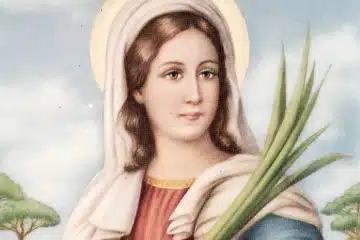Sunday Scripture: The making of good shepherds
Wednesday, July 15, 2009
By Father Timothy Schehr
Sixteenth Sunday in Ordinary Time: Jeremiah 23:1-6; Psalm 23:1-3, 3-4, 5, 6; Ephesians 2:13-18; Mark 6:30-34
Every spring we celebrate Good Shepherd Sunday. It’s the Fourth Sunday of Easter. But here it is the middle of summer, and we hear about Jesus the Good Shepherd all over again. It is certainly a theme worth repeating.
The Gospel begins with the return of the twelve apostles. Remember last Sunday’s Gospel? Jesus sent them out in pairs to preach in the surrounding villages about the kingdom of God. Now they gather around Jesus full of news about their accomplishments. We can almost hear the excitement in their voices. Of course, they still have so much more to learn before they are ready to go out to all the nations. But the Lord will see to that.
The apostles must have been tired from their missionary work. Jesus invites them to escape to some deserted place and take a rest. Here we see the compassion of the Lord, one of the characteristics of the Good Shepherd. He cares for his apostles and wants to give them time to reenergize.
But it seems they never got that chance for rest and relaxation. They take a boat to the other side of the sea, but by the time they arrive at the opposite shore a vast crowd is waiting for them. We can easily imagine the long faces on those twelve apostles. But if Jesus is the Good Shepherd for them, He is also the Good Shepherd for the crowds. Jesus was moved with pity. Did the apostles share His compassion?
In the first reading for this Sunday Jeremiah has a lot to say about shepherds too. He is concerned about the way the kings of his day were fulfilling their duty as shepherds of the people. Suffice it to say they were not doing a good job. Jeremiah can hardly wait until the day the right kind of shepherd assumes control of the flock. As the prophet says, this shepherd will do what is just and right. He will be a worthy king in David’s royal line. As we have already seen in the Gospel, Jesus is the perfect fulfillment of Jeremiah’s prophecy.
But in his own day Jeremiah had to contend with too many bad shepherds. These bad shepherds were the kings Jeremiah had to confront in the closing years of the kingdom of Judah. As successors to David they were supposed to protect the people and lead them closer to God. Jeremiah did his best to remind them of this responsibility. But he did not find good listeners in the royal court.
King Jehoiakim, for example, had so little respect for Jeremiah’s oracles that he cut one of them up into little pieces and through them into the fire (Jeremiah 36:23). King Zedekiah privately respected Jeremiah but was too afraid to put the prophet’s words into practice. Because these kings ignored Jeremiah’s message the kingdom eventually collapsed and the people became exiles or fugitives from the land.
In the second reading Paul adds one more detail to the portrait of Jesus as the Good Shepherd. In this portion of his letter to the church in Ephesus Paul is writing about the unity the church enjoys through the death and resurrection of Jesus Christ. He is thinking especially of the membership of both Jews and Gentiles in the church. The Gentiles are ones who were once “far off”; the Jews are the one who are “near.” But now because of reconciliation with God the Father won by the Lord’s passion and death any walls that once separated one group from another has been broken down. Jesus brings peace. As Paul puts it, “through Him we both have access in the one Spirit to the Father.”
Father Schehr is a faculty member at the Athenaeum of Ohio.









